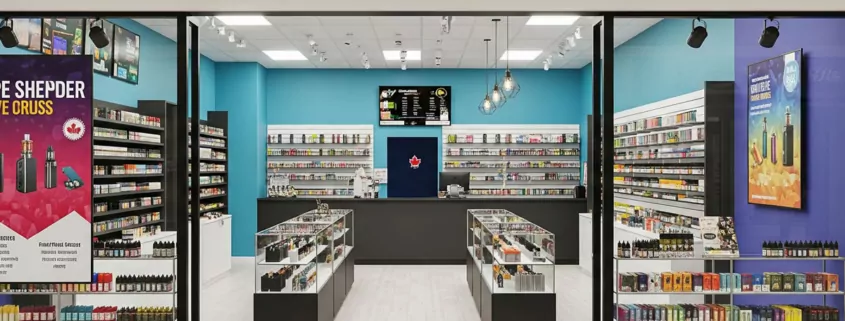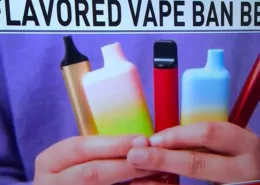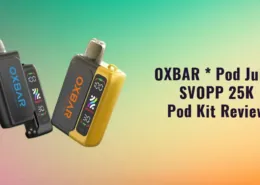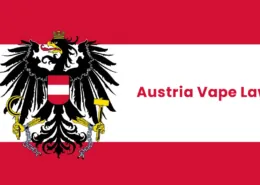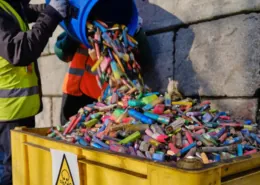The Real Cost of Starting a Vape Shop in Canada in 2025
The Canadian vaping market continues to present a significant opportunity for entrepreneurs. As a leading international e-cigarette manufacturer based in China, we work closely with new business owners and understand that a clear financial roadmap is the first step toward success. Before you can stock your shelves with the latest devices and e-liquids, you need a realistic understanding of the costs involved. Aspiring vape shop owners often underestimate the true startup capital required, leading to early operational challenges. This guide, informed by our industry expertise, provides a detailed, step-by-step breakdown of the costs associated with opening a vape shop in Canada in 2025, helping you build a solid foundation for a thriving business.
Startup Cost Summary: A Quick Overview
Before we dive into the details, here is a high-level summary table of the estimated costs. These figures can vary significantly based on your location (e.g., downtown Toronto vs. a suburban Calgary strip mall), store size, and the quality of fixtures and inventory you choose.
| Expense Category | Estimated Cost Range (CAD) | Notes |
|---|---|---|
| Legal & Licensing | $1,000 – $7,000+ | Includes business registration, provincial/municipal permits, and initial legal fees. |
| Store Lease & Setup | $15,000 – $60,000+ | Covers security deposits, first month’s rent, and renovations (painting, flooring, lighting). |
| Store Fixtures & Security | $5,000 – $15,000+ | Essential showcases, shelving, POS system, and security cameras/alarms. |
| Initial Inventory | $15,000 – $35,000+ | Your primary investment in devices, e-liquids, coils, and accessories. |
| Marketing & Grand Opening | $3,000 – $10,000+ | Branding, signage, website, and initial promotional campaigns. |
| Initial Staffing & Contingency | $10,000 – $20,000+ | Covers first few months of wages, training, and a crucial 10-20% buffer for unexpected costs. |
| Total Estimated Initial Investment | $49,000 – $147,000+ | A comprehensive budget is key to a successful launch. |
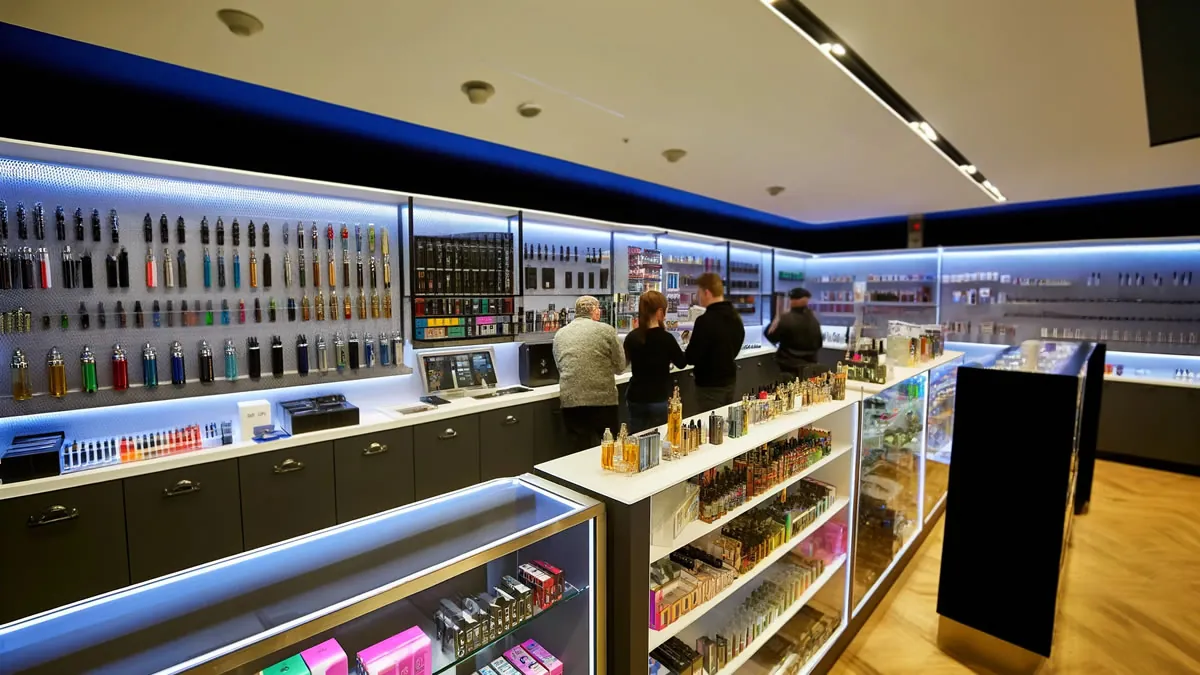
Phase 1: Planning & Legal Foundations
The first phase of your journey involves establishing the legal and financial groundwork for your business. Getting this right from the start can save you from significant headaches and costs down the line.
Business Registration and Legal Consultation
Your first decision is your business structure. A sole proprietorship is the simplest and cheapest, often costing under $100 to register in most provinces. However, incorporation offers superior liability protection and enhances credibility with suppliers and landlords. Incorporation typically costs between $300 to $600 in provincial fees, though this varies. For example, Ontario’s basic registration is around $60, while incorporating in British Columbia can be about $350.
It’s highly advisable to budget for legal consultation during this stage. A lawyer can help you choose the right structure and ensure all incorporation documents are filed correctly, preventing future legal complications. Expect to spend $500 to $2,000 on these initial legal services.
Licensing, Permits, and Compliance
Operating a vape shop in Canada requires more than a general business license. You’ll need specific permits to sell tobacco and vaping products, which are regulated at both the federal and provincial levels. The application costs for these specialized retailer permits typically range from $150 to $400 per year, depending on the province. These permits come with strict rules regarding product display, advertising, and age verification, which your staff must be trained on. For example, in Calgary, the business license fees for a vaping retailer are approximately $317, covering business, fire, and planning fees, while in Ottawa, it can be over $900 annually.
Read more details of the licensing in different provinces:
Insurance: Your Financial Safety Net
Insurance is a non-negotiable startup cost. You will need a comprehensive package to protect your investment:
- Commercial General Liability Insurance: Protects against third-party claims for injury or property damage.
- Product Liability Insurance: Crucial for vape shops, this covers claims related to harm caused by the products you sell.
- Commercial Property Insurance: Covers your store’s physical assets, including fixtures and inventory, against theft, fire, or other disasters.
Annual premiums for a comprehensive insurance package typically range from $2,000 to $6,000 CAD. Investing in a robust security system (cameras, alarms), which can cost $1,500 to $4,000, can often help reduce these insurance premiums.
Phase 2: Building Your Store – Location and Fixtures
The physical environment of your shop is what will draw customers in and define your brand. This phase involves securing a location and outfitting it to be both functional and appealing.
Rental and Location Costs
Your location is one of the most significant factors in your shop’s success and budget. Rental costs vary dramatically across Canada:
- Urban Centers (e.g., Downtown Toronto, Vancouver): Expect premium rents, often ranging from $40 to $150 per square foot annually. The high foot traffic can justify the cost, but it requires strong sales from day one.
- Suburban Locations (e.g., Edmonton, Ottawa): A more balanced option, with rents typically between $15 to $40 per square foot annually. These locations offer good visibility and parking without the premium price tag.
- Rural Areas: Offer the lowest rents, often under $20 per square foot, but come with significantly less foot traffic, requiring a stronger investment in marketing.
Remember to factor in a security deposit, which is typically two to six months’ rent upfront, and the first month’s rent.
Store Design, Renovations, and Fixtures
Once you have your space, you’ll need to make it your own. Renovations can include painting, flooring, and lighting, with costs for a basic makeover ranging from $5,000 to $15,000. More extensive renovations can easily exceed $50,000. Landlords may sometimes offer a Tenant Improvement Allowance (e.g., $5 to $20 per square foot) to help offset these costs, which should be negotiated in your lease.
Store fixtures are a critical investment that defines your shop’s look and feel. This is where quality matters.
- Glass Showcases: Essential for securely displaying high-value devices and e-liquids. Standard showcases can cost $500 to $2,500 per unit. Investing in tempered glass for safety and durability is highly recommended.
- Slatwall Merchandisers: A versatile and cost-effective option for displaying accessories and packaged goods. Panels typically cost $100 to $400 each.
- Point-of-Sale (POS) System: A reliable POS system for managing sales, inventory, and customer data is crucial. The cost for hardware and software can be around $1,500 to $5,000.
A comprehensive set of quality store fixtures for a small to medium-sized shop will likely cost between $5,000 and $15,000.
Ecigator is one of the well-known vape brands spun off from FM Technology Co., Ltd, it’s an ISO-certified disposable vape manufacturer for OEMs, ODMs, and OBM since 2010. The founder team comes from top firms with more than 10 years of experience in the vaping industry and has devoted thousands of hours to providing users with a better and better experience.
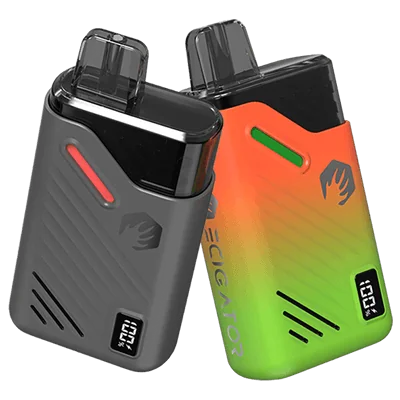
18K Disposable Pod Kit
Disposable Pod Kit – 18ml changeable pod with 650mAh rechargeable battery.
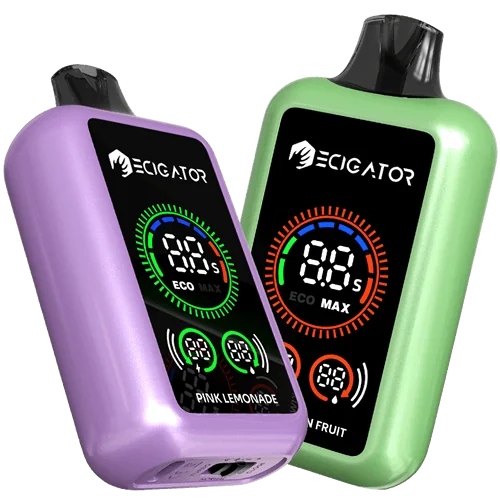
20K with Large Screen
20000 Puffs Disposable Vape with large screen. Normal and Boost working modes.
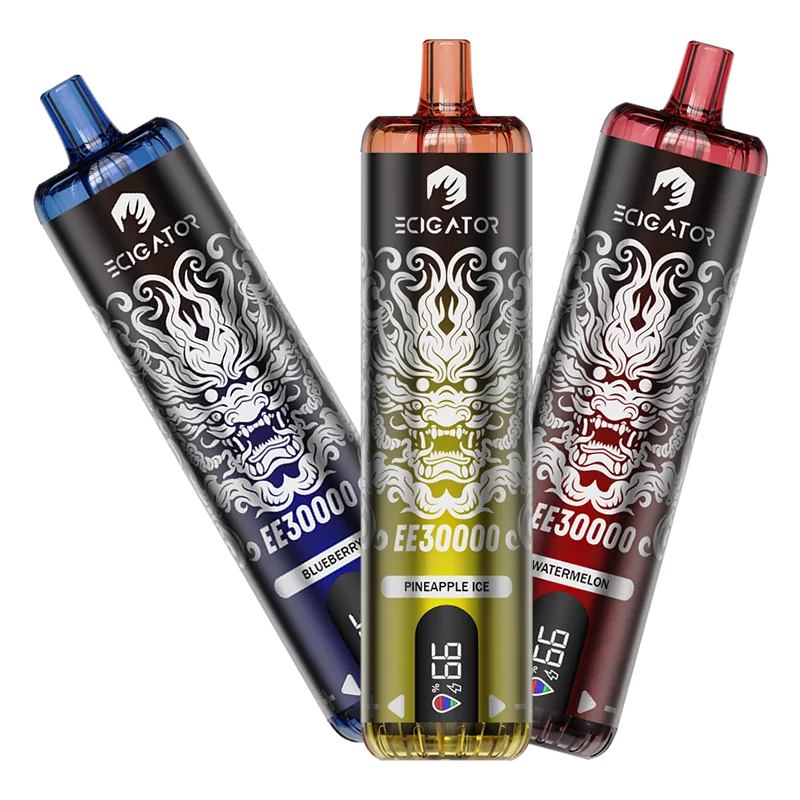
30K DTL Disposable
30K Puffs DTL(Directly to Lung) disposable vape with airflow control and screen.
Phase 3: Stocking Your Shelves – The Initial Inventory Investment
Your inventory is the lifeblood of your business. A well-curated selection of devices, e-liquids, and accessories is key to attracting and retaining customers. A typical initial inventory investment will be between $15,000 and $35,000 for a medium-sized shop.
Vaping Devices and Starter Kits
Your hardware selection should cater to both beginners and experienced vapers.
- Starter Kits: Essential for new customers transitioning from smoking. Brands like Elfbar, Geekbar, Oxva and Vaporesso are popular. Budget $3,000 to $5,000 for an initial stock (wholesale price: $20-$50 per unit).
- Advanced Devices: To retain experienced customers, you’ll need advanced mods and pod systems. These have higher wholesale costs ($40-$100 per unit). An initial investment of around $5,000 is a good starting point.
E-Liquids and Vape Juices
This is where variety is paramount. Customers love to explore flavors and nicotine strengths.
- Selection: Offer a wide range of flavors (fruity, dessert, menthol, tobacco) and nicotine strengths (from 0mg up to the legal limit, which can vary by province). Popular brands include Twelve Monkeys, Illusions, and Naked 100, alongside local Canadian makers.
- Initial Cost: Budget around $5,000 to $7,000 for an initial stock of about 500 bottles (wholesale price: $5-$15 per bottle).
Coils, Tanks, and Replacement Parts
These are your bread-and-butter repeat sales. Customers will always need replacement coils and occasionally new tanks.
- Coils: A crucial recurring purchase. An initial investment of $2,000 to $3,000 should cover a good range for popular devices (wholesale price: $2-$6 per coil).
- Tanks and Glass: Accidents happen. Stocking replacement tanks and glass parts is excellent customer service. Budget around $1,500 for this (wholesale price: $5-$15 per item).
Accessories and Supporting Merchandise
Batteries, chargers, carrying cases, and cleaning supplies are essential add-on sales. An initial investment of around $2,000 will provide a good selection. These items, often placed near the checkout, are great for encouraging impulse buys and increasing the average transaction value.

Phase 4: Ongoing Operations and Growth
Once your doors are open, you’ll need to manage ongoing expenses and invest in growth. Monthly operating costs for a small to medium shop can range from $8,000 to over $25,000 CAD.
Staffing and Payroll
Your staff will be the face of your business. Retail wages in Canada typically range from $15 to $20 per hour. Remember to budget for employer contributions (EI, CPP), which add about 12% to your payroll costs. It’s wise to have at least three months of payroll expenses saved as part of your startup capital.
Utilities and Maintenance
Electricity, heating, internet, and phone services will likely cost $500 to $1,000 per month. Routine maintenance, including cleaning supplies and minor repairs, can add another $200 to $400 monthly.
Marketing and Advertising
Getting the word out is crucial. While your initial marketing push is part of your startup costs, you should plan for an ongoing monthly marketing budget of $500 to $2,000+ to maintain visibility through digital ads, SEO, and local promotions.
Inventory Restocking and Vaping Excise Taxes
This will be a major ongoing expense. You’ll need to continuously replenish your stock. Crucially, you must also account for Canada’s vaping excise taxes. As of 2025, combined federal and provincial vape excise taxes in many provinces amount to CAD $2.24 per 2 mL for the first 10 mL and CAD $2.24 per 10 mL thereafter. These taxes significantly impact your cost of goods and must be factored into your pricing and financial planning.
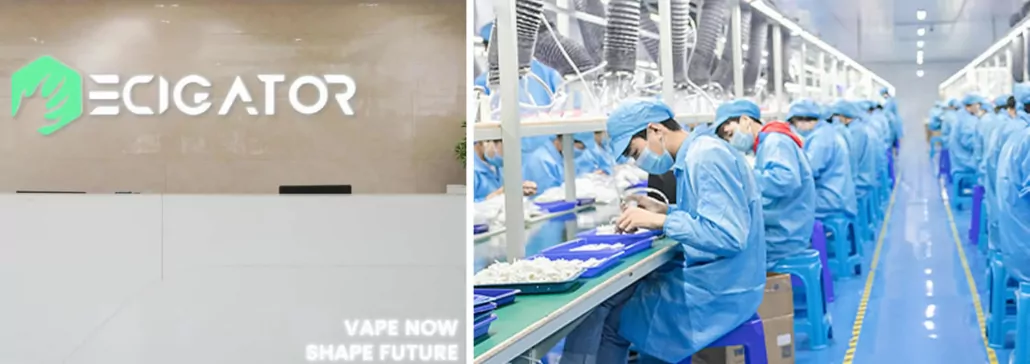
ECIGATOR
Ecigator is one of the well-known vape brands spun off from FM Technology Co., Ltd, it’s an ISO-certified disposable vape manufacturer for OEMs, ODMs, and OBM since 2010. The founder team comes from top firms with more than 10 years of experience in the vaping industry and has devoted thousands of hours to providing users with a better and better experience.
A Manufacturer’s Perspective: Regulatory Considerations and Risks
As a manufacturer, we see firsthand the importance of regulatory compliance. The Canadian vape industry is heavily regulated, and these rules directly impact retailers. The potential for further restrictions, such as provincial flavor bans (already in place in some provinces like Quebec and Nova Scotia), is a significant business risk. Industry observers have noted that such bans could force many vape shops to close. Staying informed about and strictly adhering to all federal, provincial, and municipal regulations regarding product standards, advertising, and age verification is essential for survival and success. We work with our retail partners to ensure our products meet all Health Canada requirements, providing the necessary documentation to support compliant sales.
Conclusion: Building a Successful Vape Business in Canada
Opening a vape shop in Canada is a significant undertaking that requires meticulous financial planning and a deep understanding of a complex regulatory environment. While the estimated initial investment is substantial, the growing market offers real opportunities for well-prepared entrepreneurs. The key to success lies in creating a realistic budget that accounts for all startup and ongoing costs, choosing a strategic location, curating a diverse and compliant inventory, and building strong supplier relationships. By carefully planning each phase of your launch and staying adaptable to evolving regulations, you can establish a resilient and profitable venture in Canada’s dynamic vape industry.
- Malaysia Negeri Sembilan Backs Vape Ban, Awaits Clear Laws - August 5, 2025
- Is It Illegal to Vape or Smoke While Driving in Massachusetts? - August 5, 2025
- Austria Plans to Ban Disposable E-Cigarettes - August 5, 2025

